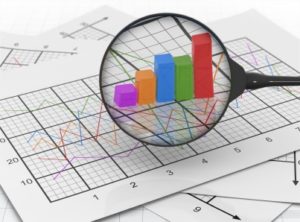This morning, I got the loveliest note from Lisa, who wrote: “I’m enjoying a new-found freedom since beginning to listen to your podcasts! Learning to listen to my body instead of so much nutrition news-of-the-day has changed my life. Thank you!!”
And it’s true: It IS really important to pay attention to what is and isn’t working for you, rather than blindly following some dietary dogma. At the same time, I think we can learn a lot from (good) research.
Why I Practice Evidence Based Nutrition
 The world of nutrition involves plenty of lore and more than a few lunatics. There are a disturbing number of people who are simply trying to cash in on ignorance and wishful thinking. There are also plenty of us out there trying to counter the crazy with facts and common sense.
The world of nutrition involves plenty of lore and more than a few lunatics. There are a disturbing number of people who are simply trying to cash in on ignorance and wishful thinking. There are also plenty of us out there trying to counter the crazy with facts and common sense.
See also: How to find reliable sources of nutrition information
I often describe my approach as “evidence-based nutrition” to signal that I put a lot of stock in the scientific method as a way of testing and refining (and sometimes abandoning) our theories. The scientific method isn’t perfect but it’s the best way we have of correcting for errors and bias.
The Limits of Evidence Based Nutrition
And yet, I also frequently suggest experimenting to find out what works for you. Because here’s the unvarnished truth: We might have data from thousands of people showing that Diet A works better than Diet B in preventing X or promoting Y. But even if an approach worked on 99% of the subjects (which never happens), that means it didn’t work for 1 out of every hundred people.
How to Experiment Safely and Sanely
 Sometimes, what works for most people doesn’t work for you. Personal experimentation can help you find what does. That’s not to say that every approach is equally worth trying.
Sometimes, what works for most people doesn’t work for you. Personal experimentation can help you find what does. That’s not to say that every approach is equally worth trying.
I wouldn’t have you experiment with an approach that’s a long shot until you’d tried the approaches that are statistically more likely to work.
I also wouldn’t have you try something risky (or insanely expensive) unless you had exhausted other less risky (and less costly) options–and only if the potential benefits outweighed the risks or costs.
The Balancing Act
Lisa’s note was a great reminder of how important it is to balance the scientific data on diet and nutrition with our own personal experience. Both are equally important and valid sources of information.
